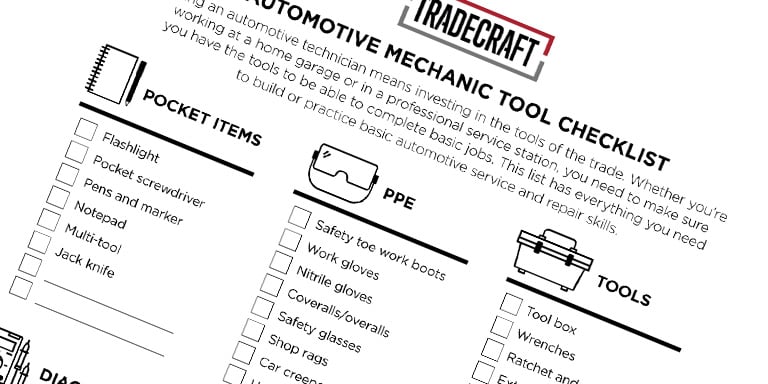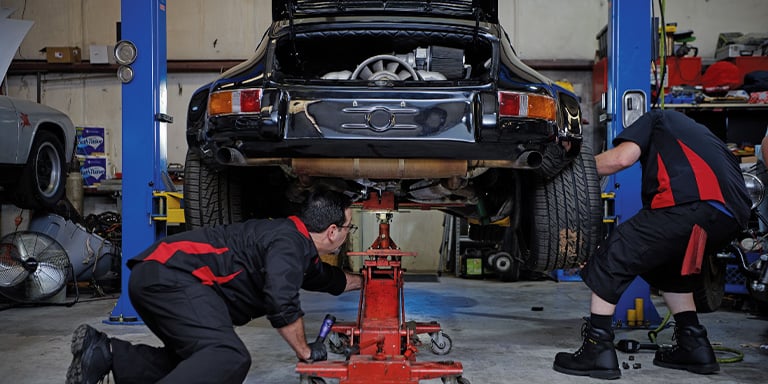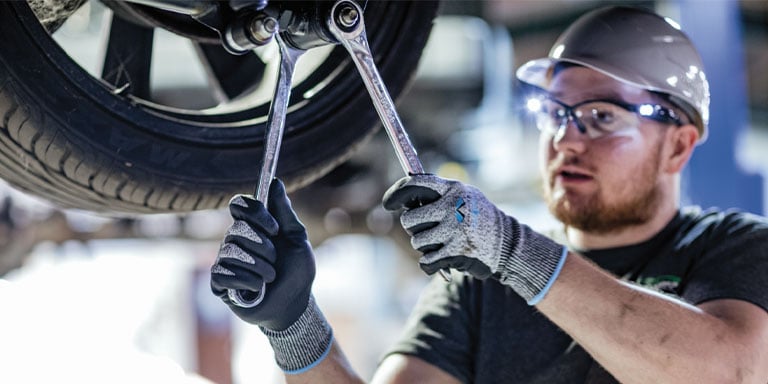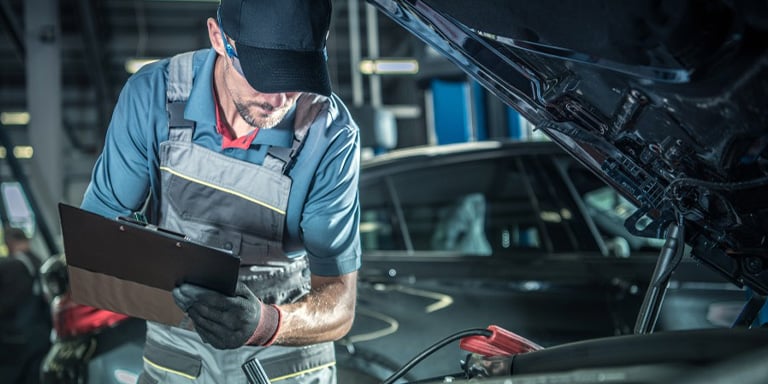
There is a revolution coming to the automotive industry. In the next few decades, modern governments around the world plan on phasing out the combustion engine — and many of the technicians who work on them. The only automotive technicians who will remain relevant are those who are prepared for this inevitable shift, which makes now the time to learn about electric vehicles.
The Rise of Electric Vehicles
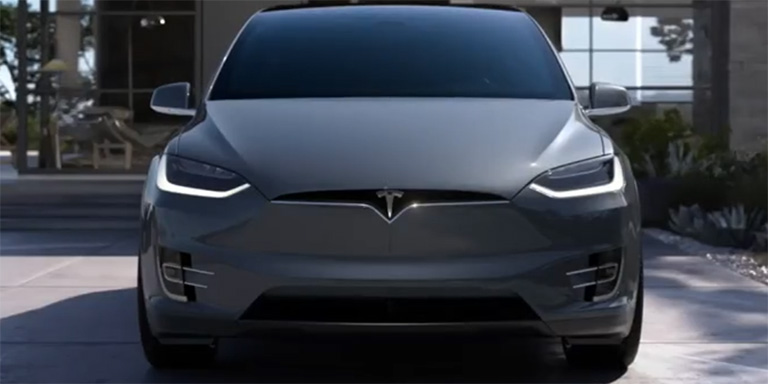
The undeniable fact is that electric vehicles are bound to take over the auto industry. The technology they use is more efficient, cleaner and increasingly affordable. This transition will be sudden, and will catch many technicians unprepared for the new influx of vehicles that they won't know how to work on.
Right now, only about 2% of all vehicles sold are fully electric models, but this will begin changing soon, and it will change relatively quickly. By 2025, about 20% of new cars and trucks will be electric. By 2030, that total will jump to 40%. By 2040, 100% of all new vehicles will be electric. This is the time frame that's been laid out by the U.S. government, but California and 12 other states have declared that they will phase out the sale of new combustion cars by 2035. Several European countries and China are also aiming to phase out combustion engines in the 2030s.
Some analysts compare the coming electric vehicle boom to the rise of the internet. In the late 1990s, there were many companies poised to harness the technology of the world wide web, but no one foresaw how much the internet would transform society. The lesson here is that nothing is set in stone when it comes to technological development, so the predictions about electric vehicles might not be conservative enough, actually.
The fact is, as soon as electric vehicle technology becomes cost competitive with fossil fuels and the combustion engine, there will be no more competition. Many companies have begun transitioning their fleets to electric, and this will continue as electric vehicles become cheaper and more accessible.
There is no denying that the combustion engine is doomed. Developers have stopped approving new multi-million dollar projects for new combustion engines, including hybrid models. Everyone is jumping on board the electric bandwagon: Ford is investing 22 billion dollars in electric vehicles through 2025, and GM teamed up with LG to invest 2.3 billion in an Ultium battery plant. Is the automotive service industry ready for this rapidly unfolding transition?
The Fate of Automotive Technicians

If you are an auto technician, don't start freaking out just yet. Current plans focus on phasing out the sale of new vehicles with combustion engines, but it will be decades before these cars and trucks disappear from the roads completely. But as the volume of electric vehicles grows, there will be a massive reduction of techs needed to service combustion engines, and many people will have to find new jobs.
This upheaval to the service industry will really take off in the 2030s, but there will be noticable changes as that decade approaches. This means that technicians who are prepared and qualified to work on electric vehicles will remain relevant, while those who only have experience with combustion engine vehicles will be at a disadvantage. Plus, demand for auto technicians will decrease since there will be much less work to go around.
Electric vehicles have significantly fewer mechanical components than combustion cars, which means they need much less servicing — and servicing much less frequently as well. So not only will many techs be unprepared to work on these vehicles, but much fewer techs will be needed to do so at all.
Some of the only automotive systems that will still need servicing include:
- Windshields
- Windshield wipers, pumps and fluid reservoirs
- Wheels and tires
- Electrical and electronic systems
Electric vehicles will make these and many other jobs obsolete:
- Oil changes
- Fuel filters
- Tune-ups and spark plug replacements
- Exhaust and emissions services
- Timing belts
- Transmission servicing
- O2 sensors
- Catalytic convertors
What about brake jobs? While these remain safe for the time being, it's important to consider the regenerative braking systems that electric vehicles use. Simply put, this cutting-edge technology is extremely responsive and allows electric vehicles to generate power when they brake. Regenerative brakes were developed by Tesla, but they have become the industry standard for electric vehicles.
These high-tech braking systems need servicing much less frequently than traditional pads, rotors and drums, which is yet another reason that employment in the automotive service industry will become increasingly competitive. Something else to consider is that many electric vehicles are able to diagnose their own mechanical and electrical issues, so diagnostic abilities will become less and less desirable in the coming years.
Like the fate of automotive technicians, the only auto shops that will survive are the ones that are prepared for the transition to electric vehicles. Since repair and maintenance services are significantly reduced for electric vehicles, it's inevitable that many independent auto shops will close this decade, and significantly more will disappear during the 2030s. By the 2040s, some auto shops may not even have the equipment and training to fuel or work on combustion engine vehicles.
The auto shops that update their training and infrastructure will not only remain competitive, but they may also increase their bottom line as competition disappears. There will be a steady rise in the amount of charging ports at gas stations as demand for them increases, and this will be one of the many upgrades that service stations will have to make to stay competitive. The transition will become most noticeable in urban areas; rural places will see less intensity for several reasons.
Regardless of where you live, it's important to know that all jobs related to the extraction, refinement, and distribution of fossil fuels will disappear in the coming decades. It's also important to consider the fact that the limitations on combustion vehicles may happen sooner and with greater vigor, since climate change is becoming an increasing point of concern for governments and industry leaders. Therefore, it's a good idea to develop transferable technical skills if you work in the fossil fuel industry, since many jobs will disappear in the coming years.
Besides phasing out combustion engines, city planners are also focusing on urban planning that will accommodate public transit, walking and bikes over all types of automobiles. These places will need technicians capable of working on electric buses and trains, and there will be a demand for people to service bikes and scooters as well. Mechanical and technical skills can transfer into other areas, too. For example, robots will need technicians to see to their manufacture, maintenance and repair.
What must be remembered is that there will be a mass exodus of techs in the next two decades because electric vehicles require much less maintenance and repair than combustion engine vehicles. Even though everything is poised to shift soon, the vast majority of automotive technicians don't know how to work on electric vehicles. Therefore, when job demand decreases in the service industry, the technicians with the most updated qualifications and experience can count on staying valuable.
How to Prepare
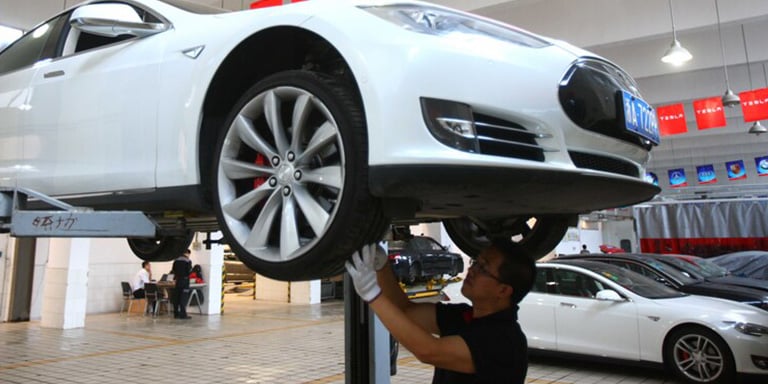
Gone are the days when we called those who work on cars “mechanics.” Today, automotive professionals must be technicians to deal with the electronic, computerized and increasingly digital nature of modern vehicles. With the transition to electric vehicles, the mechanical aspects of the service industry will become even more diminished. The auto tech of the future will look more like an IT guy than a grease monkey, but they will still be expected to change tires and have mechanical aptitude. Here are some steps techs can take to prepare.
Go to School
A person can learn plenty about the mechanical functioning of a vehicle by tinkering with it or learning about minor systems first. But electric vehicles are extremely technical, which makes enrolling in a vocational program a good idea. If you're a new auto tech, be sure to go to an accredited school with a designated electric vehicle program. If you already have an automotive degree, consider taking applicable classes at a community college to hone your technical skill set and secure your relevance.
Get ASE Certified
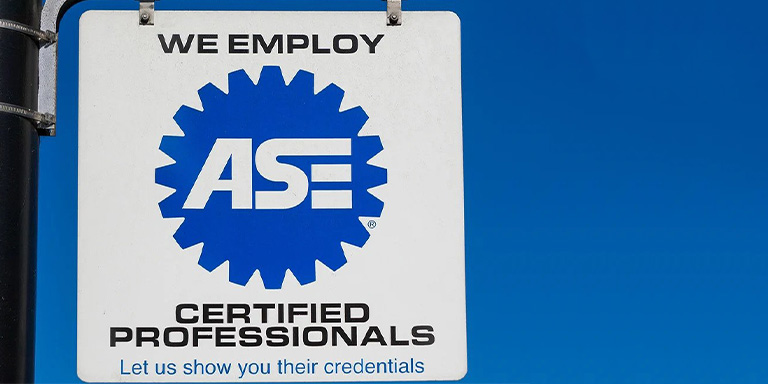
It's extremely important that automotive technicians take advantage of ASE certifications in the coming years. The Automotive Service Excellence (ASE) organization provides a professional certification program that shows technical aptitude on top of mechanical skill. While most of the certifications are geared towards combustion engines, there is an electric vehicle certification that should be pursued by proactive technicians. Whether your employer offers to help with training or not, make sure you're working toward the ASE L3-Light Duty Hybrid/Electric Vehicle Specialist certification.
To get the L3, you must have at least 2 years of full-time experience at an automotive shop. But on top of that, you must already have the A6 (Electrical & Electronic Systems) and A8 (Engine Performance) certifications under your belt. Therefore, it's a good idea to start working towards this certification whether you've been working on cars for 20 years or 2 months.
Be sure to ask your employer to help you out with reimbursement after you take the tests, since many shops have programs that facilitate employee training. If you work at an auto shop that doesn't want to help you earn your L3, you could remind them that they will need knowledgeable electric vehicles techs in the coming years. Plus, the electric vehicle boom might unfold much sooner than expected, and auto shops will be glad to have trained technicians. Either way, wise auto techs will take it upon themselves to get the proper training and certifications to work on electrical vehicles. Check out our article on how to get ASE certified to learn how to get started.
Consider Changing Your Job
If you work at an auto shop that has no plans to prepare for electric vehicles, it might be a good idea to find a job at a shop that is getting ready. Not only is this a good move for job security, but shops that can work on EVs will be more profitable. You can also prepare yourself by learning about different aspects of the automotive industry so you can transition easily if you lose your job. Learning technical skills is important, since these may easily transfer to other trades that are growing or just being born. The bottom line is that it's up to you to train, educate and prepare for the inevitable wave of job cuts that will come from the electric vehicle revolution.
Understand How to Service Electric Vehicles Safely
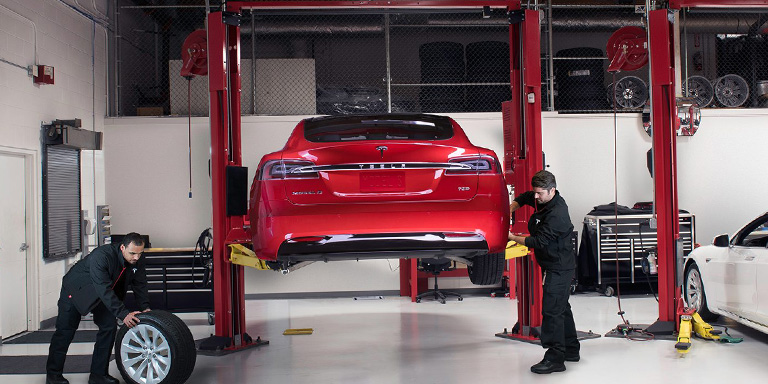
Regardless of your skill level and length of experience working on cars, don't tinker with EVs unless you're absolutely sure that you know what you're doing. Even though there are plenty of safeguards, the risk of fatal electrocution still exists if something goes wrong. These highly technical machines should not be approached with the same mechanical mindset that lets you get away with taking things apart and putting them back together to figure out how they work.
Update Your Tools

Another change to the service industry will be the amount of tools that technicians have in their boxes. With significantly less components and systems, electric vehicles streamline the repair process so that only a few insulated tools and a pair of insulated gloves are needed. There are only two diagnostic devices that are needed: a megohmmeter and milliohmmeter. So if you're working to become proficient with electric vehicles, don't worry about a huge investment in new tools and equipment.
Take Personal Responsibility
Many of the technical systems that are found in new cars will be in electric vehicles, so many auto techs are well on their way to being prepared. Just remember that now, it's all about staying ahead of the curve. Technical skills are already expected from service professionals, but the future of auto work will be much less mechanical. Therefore, you must prepare if you want to stay current with electric vehicles.
There will still be combustion vehicles on the roads for decades to come, and there will still be the need for technicians to work on them. But the demands of the job will become even more technical in the coming years, and future decades will see a significant reduction in technician employment. Those who are least prepared for electric vehicles will be the first to go, so if you're a new automotive technician or someone who plans on staying relevant in the trade, the time to prepare is now.
Did you find this article helpful?


